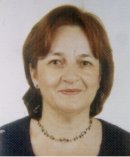Plenary Lecture
Control and Estimation Theory:
Current Trends, New Challenges, & Directions for the Future

Professor Lena Valavani
Fellow, American Institute of Aeronautics and Astronautics
Laboratory for Information and Decision Systems
Massachusetts Institute of Technology
Cambridge, MA 02139 U.S.A.
E-mail: valavani@mit.edu
Abstract: Despite the tremendous strides witnessed in the Control and
Estimation of lumped parameter systems , whether linear or nonlinear, the
issue of stability and performance robustness under simultaneous structured
and unstructured uncertainty still remains largely unresolved. When fault
tolerance, autonomy and reactivity are added to the requirements, this
presents an additional challenge. ‘Closed form’ solutions are in most cases
not possible and computational methods (optimization based, search, etc.) do
not provide the necessary guarantees.
The challenges become even greater in the case of distributed systems and
networks, such as large industrial/manufacturing plants, environmental
applications (CO2 sequestration), communications networks, traffic networks
(aeronautical, highway), space networks (satellite constellations),
biomedical applications( CNS studies) which, by their nature, require
control and estimation in a distributed setting. Requirements and
specifications can also be widely variable between safety critical and
socially/economically significant systems.
It becomes increasingly evident that control, communications and computation
need to be synergistically combined through a ‘universal formalism’ and
novel paradigms that combine logical operations (symbolic reasoning and
decision making) with analytical constructs (mathematical algorithms)and
continuous quantities(throughput, subsystem interconnections), in order to
handle heterogeneity, asynchronicity , real time functionality, properties
that typically characterize distributed systems/networks.
We focus on some representative examples to elucidate key issues that arise
in modeling, algorithm design, computation, in order to ensure robustness ,
fault tolerance, autonomy and even reactivity of distributed
systems/networks, that point to the need for total synergy of Control,
Communications , and Computation/Computer Science- to meet today’s and
future challenges.
Brief Biography of the Speaker:
Lena Valavani holds her B.S. in Physics, from Barnard College, Columbia
University, and the M.S., M.Phil. and Ph.D degrees in Engineering and
Applied Science from Yale University. After postdoctoral positions at Yale
and MIT’s Laboratory for Information and Decision Systems, she joined the
Department of Aeronautics and Astronautics, MIT, where she was Boeing
Associate Professor. She also served as Chief Scientist, Systems
Engineering, U.S. D U.S. Department of Transportation for four years. She is
currently president of Hellenic Space Systems , S .A.
Dr. Valavani served as Associate Editor of IEEE Transactions of Automatic
Control, Automatica , AIAA Journal of Guidance, Navigation and Control, and
the International Journal on Robust and Nonlinear Control. She was elected
to the Board of Directors, AIAA, N.E., and served as General Secretary. She
also was for a long time a member of the steering committee of the
International Physicians for the Prevention of Nuclear War, GBPSR, (1985
Nobel Peace Prize).
Her research interests are in modeling for, and the analysis and synthesis
of control systems, estimation and identification, with emphasis on
robustness to structured and unstructured uncertainty, fault tolerance and
reconfiguration, currently in distributed systems and networks . Her
research in the U.S. was supported by NASA, NSF, AFOSR,ONR ,and by private
industry , resulting in innovative designs of prototype systems currently in
operation in the U.S; in Europe by ESA and EC. She has supervised 27 Ph.D
and 29 M.S theses at MIT , and 22 M.S. theses at NTUA and UoA.
Dr. Valavani was consultant to Lincoln Laboratory, C.S.Draper Laboratory ,
and Bell Helicopter while in the U.S. She received the Best Research Paper
Award (1991) from the International Gas Turbine Institute and holds three
U.S. Patents in the area of controlling unsteady aerodynamic processes in
compressors. She is an Associate Fellow of AIAA.